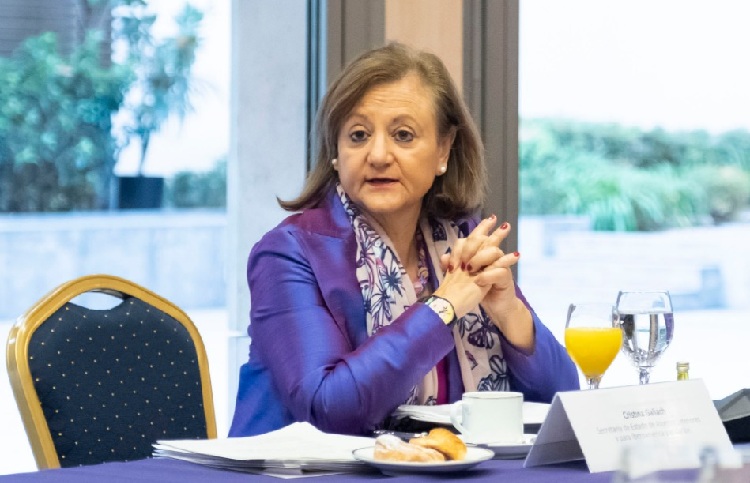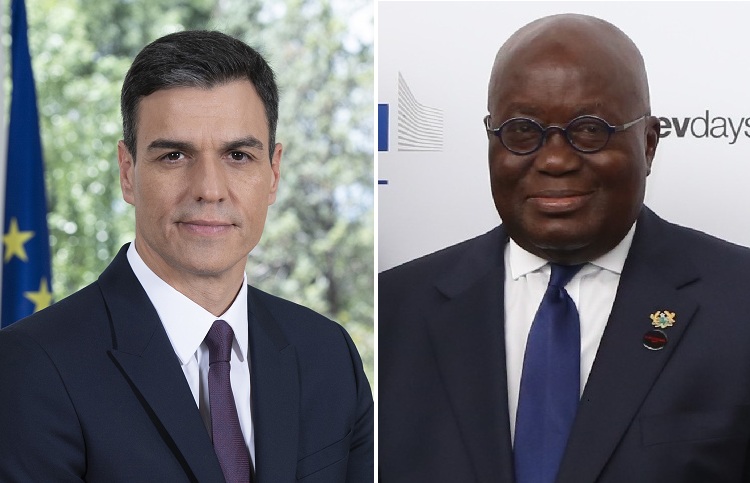Luis Ayllón
The State Secretary for Foreign Affairs and for Latin America and the Caribbean, Cristina Gallach, will visit Venezuela today and tomorrow with the aim of trying to redirect bilateral relations, after the latest episode of confrontation at the beginning of the month.
The announcement of Gallach’s visit, who last week toured several Central American countries, was made last night by the Ministry of Foreign Affairs, in a note indicating that the aim of her stay in Caracas is to “take an interest in the humanitarian response to the Covid-19 pandemic, as well as to support the national dialogue in search of a political solution to the crisis in the country”.
The note adds that the Foreign Ministry’s ‘number two’ will maintain numerous contacts with the main Venezuelan actors, including “representatives of Maduro’s government, the democratic opposition, civil society, academia, businesses and NGOs”, with the aim of “seeing how Spain can contribute to the resolution of the current situation in Venezuela and for Venezuelans”.
Diplomatic sources consulted by The Diplomat pointed out, however, that Gallach’s visit is an attempt to redirect relations with the government of Nicolás Maduro after the latter lashed out at the Minister of Foreign Affairs, Arancha González Laya, for the visit she made at the end of February to Cucuta, the border between Venezuela and Colombia, to inquire about the situation there of the 1,700,000 Venezuelans who have taken refuge in the neighbouring country.
Maduro accused González Laya of supporting “Colombia’s xenophobic policy against Venezuela” and assured that he had given orders to his foreign minister, Jorge Arreaza, to “thoroughly review” relations with Spain, a threat that he has made on other occasions, but which has never resulted in anything concrete.
Faced with Maduro’s attitude, the Spanish government summoned the Venezuelan Chargé d’Affaires in Madrid, Mauricio Rodríguez Gelferstein, on 1 January, although the Ministry of Foreign Affairs, in an attempt to avoid adding further tension to the bilateral relationship, presented this as a meeting at the initiative of Cristina Gallach herself, who was in charge of receiving the Venezuelan representative.
In any case, Gallach expressed the Spanish government’s displeasure at Maduro’s words and also at the expulsion the previous week of the European Union’s ambassador in Caracas, Isabel Brilhante, in retaliation for the EU-27’s latest sanctions against leaders of the Bolivarian regime.
The State Secretary will now have the opportunity to meet with Foreign Minister Arreaza, in an attempt to redirect a relationship that is at a low point. In fact, since last October, Spain and Venezuela have maintained their diplomatic representations at the level of Chargé d’Affaires with Cabinet letters, a figure included in the Vienna Convention to express that relations are not fully satisfactory.
Contacts with representatives of the Venezuelan opposition have not materialised and it is not known whether it will be possible to hold talks with Juan Guaidó, as he has announced that he has tested positive for COVID-19 and must remain in quarantine.
The Spanish government, in line with what has been agreed within the European Union, has stopped referring to Guaidó as president in charge of Venezuela, although it does not recognise the Assembly that emerged from last December’s elections, controlled by Maduro, because the elections were held without sufficient democratic guarantees.
During her visit to Caracas, the State Secretary also plans to hold meetings to take an interest in the large Spanish colony in Venezuela, as there are more than 150,000 Spanish citizens living in the Caribbean country.







